Climate-smart integrated livestock management systems
- Proposed areas of implementation
- Potential areas of implementation
Project Partner
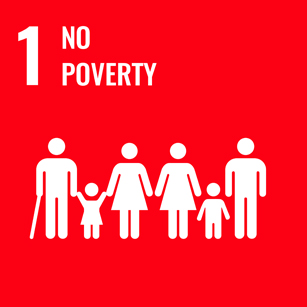
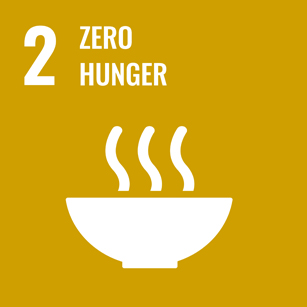
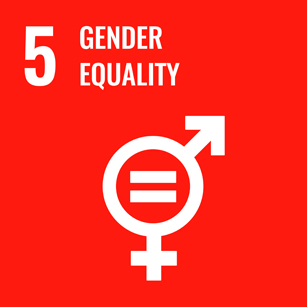
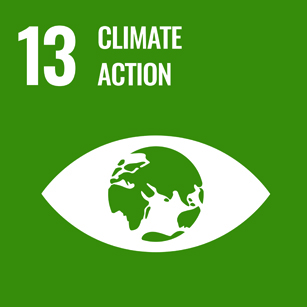
The livestock sector plays a crucial role in the Indian economy; ensuring food security, generating livelihoods, and contributing to the income of millions of households. Despite its significant contributions, this sector faces numerous challenges, including low productivity, disease outbreaks, and limited access to inputs and markets. Additionally, the livestock sector has substantial environmental impacts, such as greenhouse gas emissions and land-use change. The vulnerabilities faced by small and marginal farmers, who constitute a significant portion of the sector, are further exacerbated by limited resources and the effects of climate change. To address these pressing issues, the proposed project, to be implemented by Aga Khan Rural Support Programme (India) [AKRSP(I)], adopts an interdisciplinary approach, considering natural and socio-economic systems, as well as technological innovations. It builds on the learnings and successes of similar efforts by AKRSP(I) in its existing operational areas. The project aims to promote innovative, sustainable, and climate-smart livestock production systems through an integrated livestock management approach. This approach includes the implementation of the Ration Balancing Programme; a programme initiated by the National Dairy Development Board (NDDB) to educate farmers on balanced feeding of their dairy animals, seeks to enhance productivity, reduce greenhouse gas emissions, improve animal health, and enable livestock-owning communities – with particular emphasis on women and marginalised groups – to better cope with climate change impacts. Ultimately, the project strives to enhance food security, increase income, and promote sustainability in the livestock sector, benefiting both farmers and the environment. The project will benefit 5000 cattle rearing households, across 50 villages of Gujarat and Bihar.
Context
Animal husbandry plays a crucial role in the Indian economy, ensuring food security for millions by providing essential food products such as milk, meat, and eggs. It also serves as a source of livelihood for over 80 million households, with a particular emphasis on small and marginal farmers (SMFs) and women, who rely on it for a significant portion of their income. The livestock sector contributes significantly to the agricultural sector’s gross value addition, accounting for 6% of the country’s gross domestic product. Furthermore, the market size of animal husbandry is projected to grow due to population growth, urbanisation, and increasing demand for meat and dairy products. The market size reached INR 1085 billion in 2022 and is projected to reach INR 1683 billion by 2028, with a compound annual growth rate (CAGR) of 7.4% during the period of 2023-2028.
However, the livestock sector faces several challenges, including low productivity, disease outbreaks, and limited access to inputs and markets; additionally, the sector has significant environmental impacts. Livestock production contributes to greenhouse gas emissions, accounting for a substantial portion of global emissions, particularly methane and nitrous oxide. As per the Third Biennial Update Report submitted by the Government of India (GoI) to the United Nations Framework Convention on Climate Change (UNFCCC) in 2021, the agriculture sector in India contributed 14% to the total greenhouse gas (GHG) emissions. Within the agricultural sector, 54.6% of emissions were attributed to enteric fermentation from cattle, while 6.7% resulted from manure management practices. The livestock sector also drives land-use change and degradation through deforestation, excessive water use, and pollution from animal waste and agricultural chemicals (used for feed crops).
Small and marginal farmers face additional vulnerabilities due to limited resources and the effects of climate change. They struggle with access to advisory services, quality inputs, credit, and markets, which hinders their ability to care for their livestock effectively such as, providing for adequate feed, vaccinations, health services. The adverse impact of climate change on agriculture further threatens their livelihoods. Supporting these communities with capacity-building initiatives and adaptation strategies is crucial to build resilient livestock production systems. For this, the focus should be on innovative, sustainable, and climate-smart livestock production systems that integrate animal health and nutrition with environmental management and socio-economic development. An integrated approach can help improve animal health and nutrition, increase productivity, and improve smallholder farmers’ livelihoods.
To address these challenges, the proposed project by AKRSP(I) on integrated livestock management focuses on sustainable and climate-smart practices. It aims to empower communities through capacity building, improving animal health and nutrition as well as productivity, and enhancing smallholder farmers’ livelihoods. The project promotes sustainable feed and fodder production, implements the Ration Balancing Programme to optimise livestock productivity while reducing emissions, and adopts improved manure management techniques. These measures align with climate-smart livestock production, which aims to increase productivity, enhance resilience, reduce greenhouse gas emissions, and contribute to food security and development goals. The project also emphasises community participation, providing training and knowledge transfer to livestock owners, and integrating preventive livestock care services. By implementing these interventions, the project seeks to address the challenges posed by climate change, build resilience in livestock production systems, and minimise the sector’s environmental impact. Ultimately, the project aims to achieve sustainable livestock farming, benefiting both the communities and the environment.

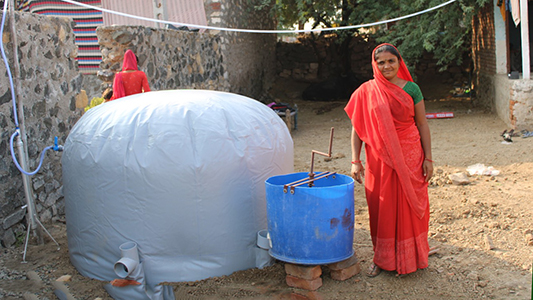
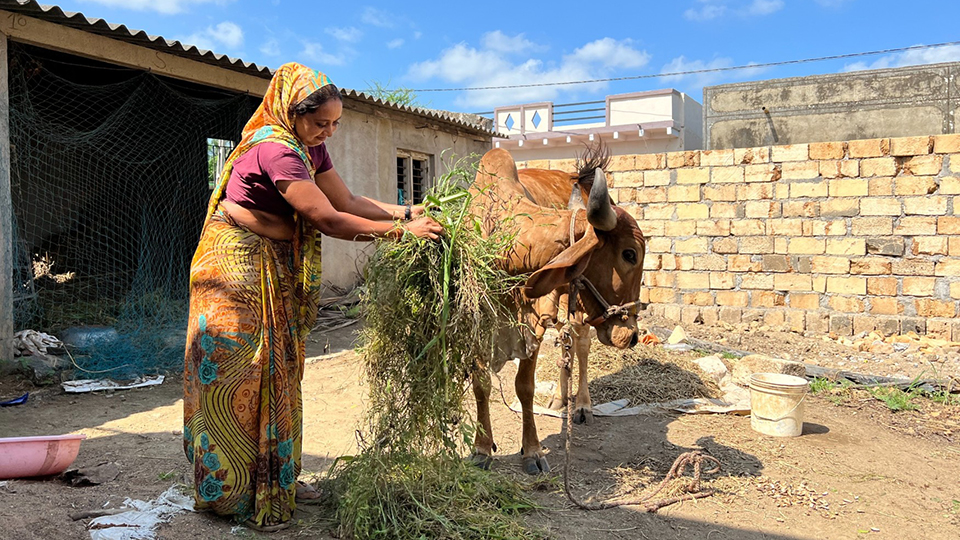
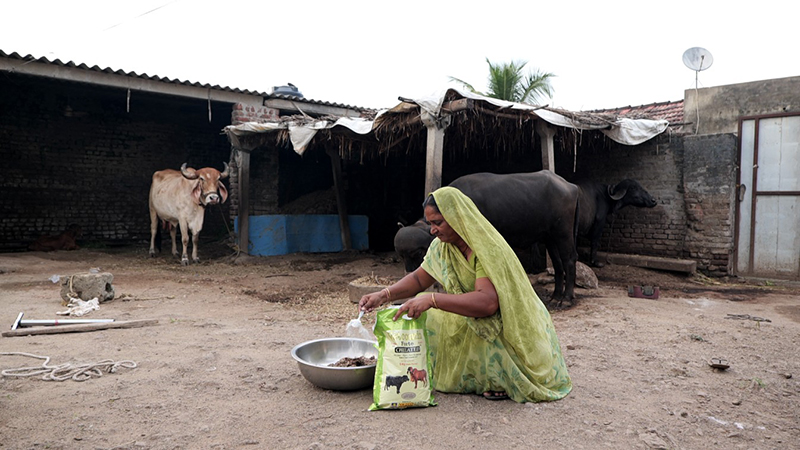
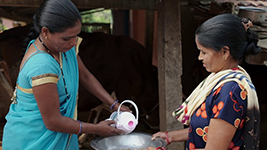
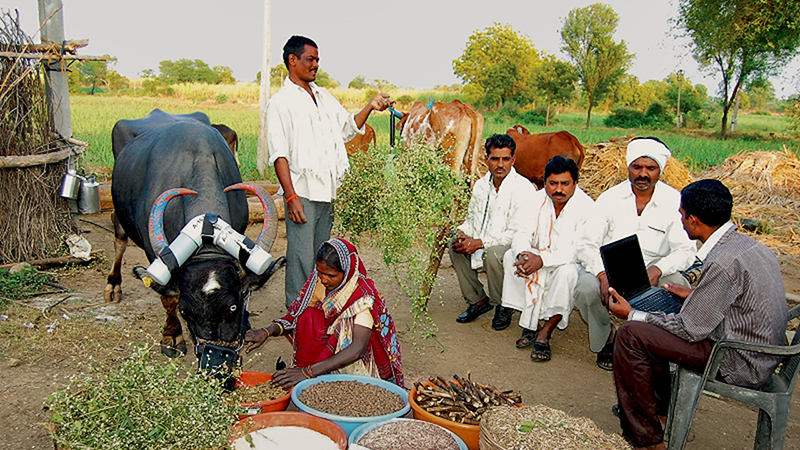

Problem statement
The dairy industry has long been considered the backbone of Gujarat’s rural economy, with approximately 40 lakh rural households involved in 18,600 village milk societies that supply milk to 18 district cooperative units affiliated with the Gujarat Cooperative Milk Marketing Federation. However, livestock owners face challenges related to low productivity and income. Several factors contribute to these issues, including acute water shortages exacerbated by the climate crisis, rising prices of fodder and feed, high construction costs, limited access to capital affecting housing practices, lack of awareness regarding balanced feed/ration and health management, and non-remunerative prices for milk.
In 2022, AKRSP(I) conducted a baseline assessment in the proposed project geographies (in select districts in Gujarat and Bihar), using focus group discussions and field observations. The assessment revealed that livestock ownership was widespread among the target communities, with many households engaging in livestock rearing as their primary or secondary livelihood. Large ruminants such as cows (both indigenous and crossbred), oxen, and buffaloes were common in the regions. Livestock-owning communities in the region faced several challenges that hindered their livelihoods, as summarised below:
- Limited access to resources, including land and water; along with a lack of capital, credit, and market access, restricted their ability to support livestock adequately. Inadequate veterinary services and gaps in breeding techniques further compounded these challenges.
- While livestock management practices varied, most families practiced traditional feeding and fodder management practices, with little or no scientific livestock management, resulting in low productivity.
- The lack of knowledge and technical skills, and social and cultural constraints for women in terms of access to resources, decision-making power, and training pose barriers to sustainable livestock management and economic empowerment.
- Threats from climate change and environmental degradation introduced additional challenges. Increased frequency and intensity of extreme weather events disrupt natural resources essential for livestock production, such as grazing land and water sources. Changes in rainfall patterns and temperature alter forage availability and quality, leading to feed shortages and compromised livestock productivity. The distribution of diseases and pests due to climate change also risks livestock health and productivity.
The baseline assessments highlighted the strong demand from community members for interventions to improve animal health, livestock productivity, and profitability. They expressed the need for accessible veterinary services, capacity-building initiatives, improved feed options, and guidance on proper feeding practices. These findings provided valuable insights for designing targeted livestock management interventions that address the specific needs and aspirations of the community while ensuring project sustainability, impact, and climate benefits.
Goals and objectives
The proposed project aims to promote innovative and sustainable climate-smart livestock production systems through an integrated livestock management approach. The project aims to achieve this by considering a comprehensive range of factors, including animal health, increased productivity, minimizing negative environmental and climate change impacts, and building adaptive capacities and incomes for livestock-owning communities in the Dangs, Junagadh, and Devbhoomi Dwarka districts of Gujarat and the Vaishali district of Bihar.
The specific objectives of the proposed project on integrated livestock management are as follows:
- Increase awareness and knowledge among SMF-livestock holders on the benefits of integrated livestock management practices to enhance incomes, reduce greenhouse gas emissions from livestock, and build adaptive capacities to climate-induced risks.
- Promote the adoption of integrated livestock management practices among smallholder farmers in the targeted geographies.
- Improve the health, nutrition, and reproduction efficiency of animals.
- Reduce greenhouse gas emissions from livestock production systems while enhancing productivity and promoting resilience to climate change.
Improve smallholder farmers’ livelihoods and food security, particularly women and marginalised groups in the targeted geographies, through integrated climate-smart livestock production systems. Food security is envisaged as an indirect benefit of the programme, actuated through an increase in household income. Furthermore, it is anticipated that the enhanced productivity of milch animals will result in surplus produce, which, if unsold, can be consumed by the household, thereby serving as a valuable source of protein.
About the organisation
The Aga Khan Rural Support Programme (India) is a non-denominational, non-governmental developmental organization committed to enhancing rural communities in a non-denominational manner. With nearly 40 years of working experience in rural India, AKRSP(I) focuses on empowering underprivileged individuals, particularly women, through various initiatives. These initiatives encompass natural resources management, climate change adaptation and mitigation, sustainable agriculture and ecosystem practices, livestock development, rural governance, community institutions, financial inclusion, education, skills and entrepreneurship, renewable energy, drinking water, and sanitation. Central to AKRSP(I)’s operations is the establishment of self-reliant people’s institutions that foster financial inclusion, improve livelihoods, and enhance rural governance. By mobilixing human, financial, and technological resources, AKRSP(I) effectively implements its development approach. Through professional assistance, the organization helps rural communities identify and prioritize their needs, enabling them to determine appropriate interventions to achieve their goals. AKRSP(I) operates in over 2500 villages across Gujarat, Madhya Pradesh, Bihar, and Maharashtra, positively impacting the lives of more than 1.5 million marginalized individuals. Notably, over 80% of the households affected by AKRSP(I)’s work belong to marginalised communities such as tribals, dalits, and minorities. Women, comprising over 60% of the beneficiaries, play a vital role in the program’s interventions.






